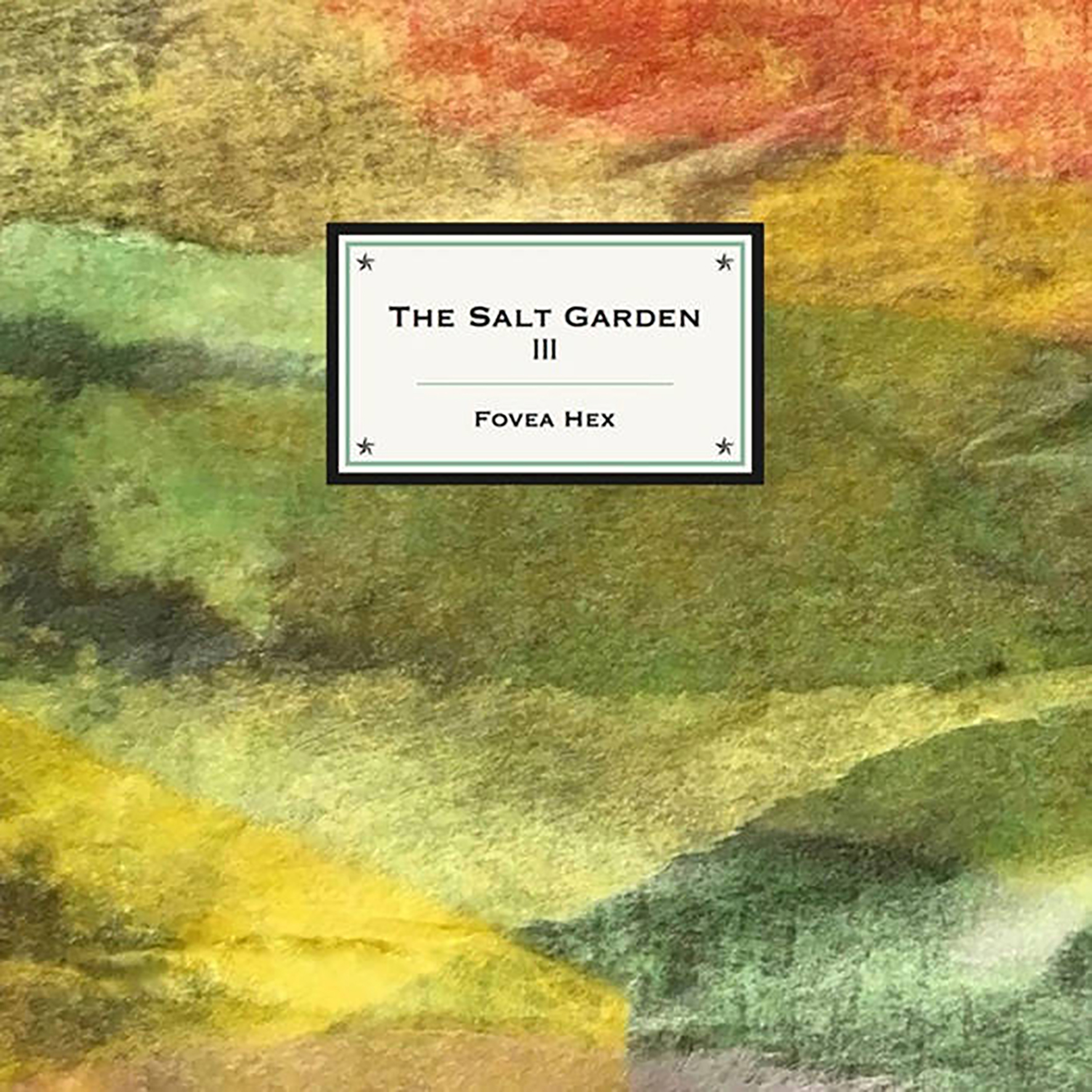
This third installment of Fovea Hex’s excellent "The Salt Garden" trilogy brings the series to a close on an unexpectedly uplifting note, as Clodagh Simonds' ensemble transform their signature haunting and meditative hymnals into joyous, light-filled ones. Much like its predecessor, however, The Salt Garden III has also been released in an expanded edition with some bonus remixes. In this case, however, the remixes are a track-for-track reimagining of the entire EP by Headphone Dust's Steven Wilson. In essence, that offers two significantly different versions of the same EP, as the Wilson remixes take these four songs in a more shadow-shrouded and meditative direction akin to the previous EPs. Naturally, both are a delight, as Fovea Hex is a project like no other, occupying an enchanted and timeless realm of sublime, organic beauty.
As with all Fovea Hex releases, the beating heart of The Salt Garden III is Clodagh Simonds' voice, as her simple, lovely melodies float over understated, minimal musical backdrops to evoke something akin to an ancient Druidic ceremony in a forest clearing.This time around, however, Simonds is joined by a pair of choral ensembles (the Dote Moss Choir and the Medazza Choir) to occasionally expand those melodies into harmonically lush and rapturous crescendos.The opening "The Land's Alight" is the definitive statement in that vein, as it begins as a chant-like minor key reverie over a gently shimmering bed of synthesizer drones.Around the midpoint, however, the tone completely transforms and Simonds' voice is joined by a mass chorus for a radiant crescendo brimming with light and simple joy.Objectively, it feels like the EP's clear centerpiece, but I am personally more drawn to the record's darker second half, as I have never been the target demographic for beatific rapture or radiance.Bridging those divergent moods is a lovely and delicate instrumental piece ("Trisamma") that highlights Cora Venus Lunny's darkly sensuous strings.
The more melancholy half of the EP begins with "A Million Fires," which is another choir-centric piece, though its heavy harmonium drones and majestic tone imbue it with a bit more gravitas than "The Land's Alight."In fact, it almost feels like an elegy, but there is an undercurrent of hopefulness that gives it an ambiguous and bittersweet feel that resonates more deeply with me than pure light or pure darkness would have.The closing "The Given Heat" initially creeps into far more seething and haunted territory, but it has more complicated emotions lurking in its core as well, as it organically swells into warm, ascending crescendos as it unfolds.More than any other piece on the EP, "The Given Heat" is where it most strongly feels like all of the individual components of Fovea Hex seamlessly come together in fluid harmony, as structures effortlessly dissolve and eerie synth tones quaver and swoop in the periphery like flickering ghosts.Like all of the other pieces, it feels like a glimpse into an imagined past, but twists that aesthetic by presenting it more like a precarious dream with some very dark shadows gnawing at the edges.      
For the most part, Wilson's four remixes faithfully retain the spirit and structure of the original pieces, but they feel slowed and stretched in a way that pulls them a bit closer to ambient territory.That makes them a lovely and welcome coda for a release that is all too brief, but I also quite liked what Wilson did with his version of "The Land's Alight," as the climatic switch to a major key is deconstructed into hallucinatory abstraction that favorably calls to mind some of This Mortal Coil's more experimental moments.In fact, given that this EP is a farewell to a beloved trilogy, I kind of wish Wilson had continued on and remixed his remixes so that the EP repeated again and again in increasingly dissolved and dreamlike form.In the absence of that imaginary tour de force, however, The Salt Garden III is another characteristically fine release in Fovea Hex's near-flawless discography.To my ears, the first two Salt Garden EPs featured stronger songs and more memorable hooks, but the final EP's shift towards mood and atmosphere casts its own kind of lovely spell.More importantly, the fundamental beauty of this project has always lay in its overall aesthetic rather than in the craftsmanship of any individual songs and that remains true here.When Simonds and her collaborators are at their best, it uncannily feels like they are vessels through which imagined ancient folk songs are being soulfully and supernaturally channeled.
Samples can be found here.
Read More

